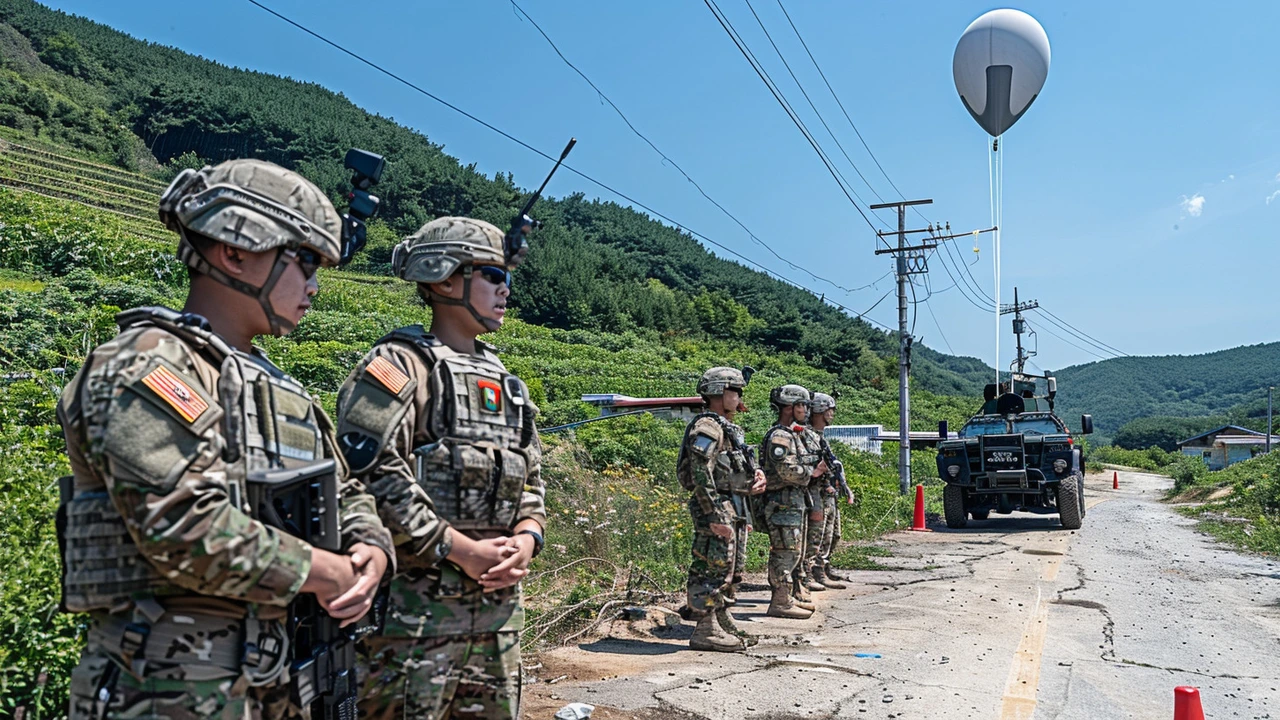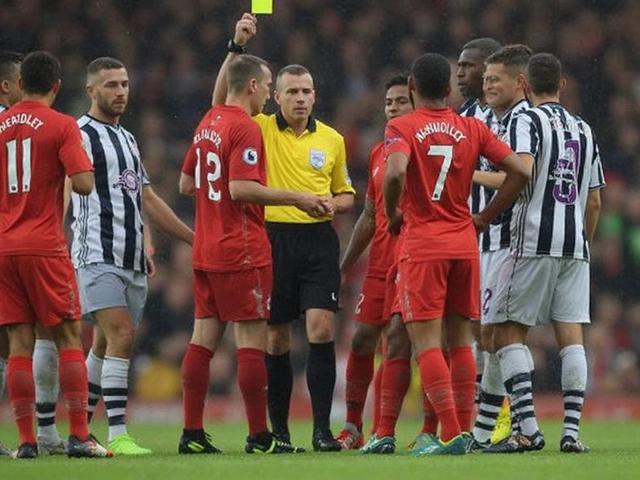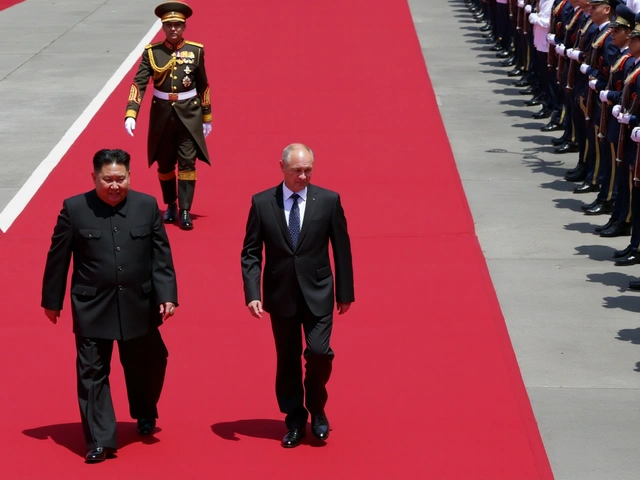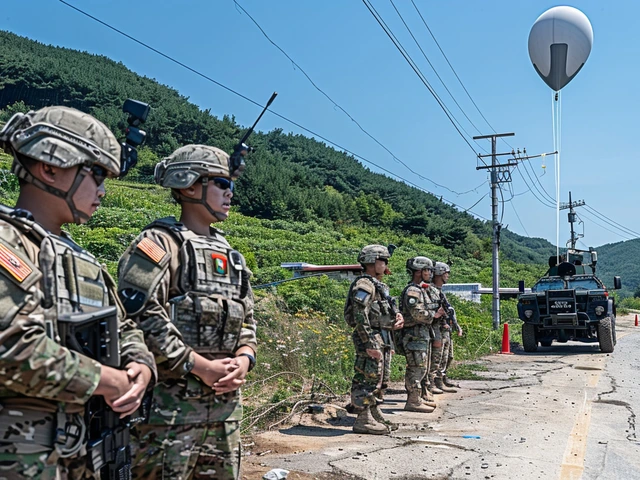North Korea Stops Floating Trash Balloons into South Korea
In a surprising turn of events, North Korea has stated that it will cease its unusual campaign of sending trash-filled balloons over the border into South Korea. This announcement comes after a period of heightened tension between the two nations, fueled by their ongoing conflict over both political ideologia and military posturing. The campaign, which involved balloons carrying rubbish such as cigarette butts and plastic waste, was initially launched by North Korea as a countermeasure to the anti-regime propaganda floating in from their southern neighbors.
Seoul Reacts with Warnings
South Korea's military had previously issued stern warnings to Pyongyang, threatening to retaliate if the provocations did not stop. They reported hundreds of balloons crossing the heavily fortified border, creating not just a political nuisance but also an environmental one. Seoul’s defense authorities have condemned North Korea’s actions as being both “irrational” and “low class,” a sentiment echoed widely among South Korean citizens. This act of ‘balloon warfare’ was a physical manifestation of the hostility that still simmers between the two countries, despite the 1953 armistice agreement that ended Korean War hostilities.
North Korea's Perspective
Kim Kang Il, the North Korean vice defense minister, described the trash balloon campaign as a success, claiming it effectively demonstrated the effort required to clear the rubbish, making South Koreans experience the unpleasant reality his regime deals with. While North Korea has decided to halt the campaign, Kim emphasized that any resurgence of anti-Pyongyang propaganda from South Korea would lead to a more robust counterattack. He warned that North Korea would not hesitate to send back trash balloons on a much grander scale if provoked again.
The Propaganda War
The use of balloons as a weapon in the North-South conflict has a long history. Activists in South Korea frequently launch balloons filled with anti-regime leaflets, cash, rice, and USB drives containing South Korean dramas—known as K-dramas—across the border. These items are intended to provide North Koreans with information and entertainment otherwise inaccessible due to strict state censorship. North Korea's response to this has been to launch its own balloons filled with trash, framing it as ‘sincere gifts’ in retaliation for the propaganda-laden balloons sent their way.
GPS Jamming
In addition to the trash balloons, North Korea has been accused of GPS jamming, another low-level but significant act of hostility. South Korea says these maneuvers disrupt civilian and military systems, posing a substantial risk to both safety and national security. This jamming of GPS signals is seen as an extension of North Korea's broader strategy to destabilize and provoke the South.
Hope and Tension
The South Korean government has made it clear that it has no intention of tolerating North Korea’s antics. They have threatened strong countermeasures unless Pyongyang calls off its trash balloon campaign, suggesting that such actions run counter to the spirit of the armistice. This could include the resumption of loudspeaker propaganda broadcasts along the border, a tactic previously used to blare South Korean news, pop music, and messages denouncing the North Korean regime. Experts caution that such an escalation could lead to limited armed conflict along the heavily fortified demilitarized zone (DMZ).
The Role of Activists
Activists from the South play a complicated role in this geopolitical chess game. Well-meaning but often controversial, these activists take tremendous risks to send messages and materials to the North. Their efforts are intended to inform and influence North Korean citizens, but they also risk triggering severe reactions from the Pyongyang government. The South Korean government often finds itself in a delicate balancing act, weighing the value of these activism efforts against the broader goal of maintaining peace and security.
National Security Implications
The ongoing exchange of balloons filled with either trash or propaganda could have grave national security implications. The National Security Council in South Korea recently convened to discuss this issue, acknowledging the potential for limited armed conflict. A presidential official stated that while they do not rule out responding with their loudspeakers, Seoul aims to avoid unnecessary escalation.
A Look Ahead
The future of inter-Korean relations remains uncertain. While North Korea’s promise to halt the trash balloons is a step forward, the threat of resuming this campaign looms heavily. Until a more permanent resolution is reached, both nations find themselves in a precarious stand-off, where even the smallest spark could ignite larger hostilities. The international community watches closely, aware that what happens on the Korean Peninsula could have broader implications for regional and global stability.
The Bigger Picture
This small but unsettling chapter in the inter-Korean conflict highlights the ongoing complexities and tensions that continue to define North-South relations. Actions as seemingly trivial as sending trash-filled balloons over a fortified border are imbued with deep political significance. They reflect broader power struggles, longstanding grievances, and a mutual desire to assert dominance. In a world where major conflicts can be sparked from minor provocations, every balloon has the potential to be the start of something much larger.









Ashutosh Bilange
June 3, 2024 AT 19:22Yo, those trsh balloons are just the cringe of the DMZ drama lol.
Kaushal Skngh
June 10, 2024 AT 18:02Honestly, the whole balloon saga feels like a lazy stunt that neither side needs. The trash over the border just adds more junk to the conversation.
Harshit Gupta
June 17, 2024 AT 16:42Calling it a lazy stunt is naïve; the South’s propaganda leaflets are the real insult, and North Korea’s balloon response is a justified pushback against imperialist media.
HarDeep Randhawa
June 24, 2024 AT 15:22Wait-so you think a handful of plastic bags can sway geopolitics???; but let’s not ignore that the real issue is the endless cycle of taunts and the absurdity of “balloon wars”!!!
Nivedita Shukla
July 1, 2024 AT 14:02When we gaze upon a simple balloon drifting over the DMZ, we are forced to confront the weight of history that it carries. It is not merely a sack of garbage; it is a symbol of humiliation, a message wrapped in irony. The North, starved of information, throws refuse as a bitter mirror to the South’s glossy leaflets. In each piece of litter lies a story of a regime that cannot afford a whisper of dissent. The South’s activists, with their USB drives and cash, claim to be liberators, yet they also fuel a propaganda engine that thrives on asymmetry. The voices that float on these balloons echo the clamor of nations that have long fought for narrative dominance. One could argue that the trash is a manifestation of collective frustration, an embodied sigh of a people who feel unheard. Yet the act of sending waste back is also a reminder of the environmental toll of such symbolic gestures. As the balloons ascend, the winds carry not just plastic but also the hopes and the resentments of both peoples. The DMZ, a scar on the peninsula, has become a stage where even the most trivial objects are weaponized. The decision by Pyongyang to halt the campaign may signal a strategic pause, but the underlying tension remains, like a pressure cooker awaiting the next trigger. If propaganda balloons resume, the response could be louder, more aggressive, perhaps even beyond garbage. The international community watches, hoping that cooler heads will prevail, while the everyday citizens on both sides wonder if any real change will ever arrive. In the end, a balloon is just a balloon, but the meanings we attach to it shape the fragile dance of peace and conflict.
Rahul Chavhan
July 8, 2024 AT 12:42That breakdown makes sense; the balloon thing really shows how small actions can echo big feelings across borders.
Joseph Prakash
July 15, 2024 AT 11:22Interesting point about the environmental impact 🌍 the balloons add litter and also stress the already tense relationship.
Arun 3D Creators
July 22, 2024 AT 10:02balloons are just symbols of deeper divides they float but the real issue is how we talk across the line
RAVINDRA HARBALA
July 29, 2024 AT 08:42Statistically, the frequency of balloon incidents has risen by 37% over the past five years, correlating with increased propaganda broadcasts from the South.
Vipul Kumar
August 5, 2024 AT 07:22Look, whether you’re on the North or South side, it helps to remember that both peoples share culture, food, and hopes for a better future.
Priyanka Ambardar
August 12, 2024 AT 06:02Sharing culture is fine, but we must stay vigilant 😠 the South’s tactics aim to destabilize our sovereignty.
sujaya selalu jaya
August 19, 2024 AT 04:42Respecting each other's concerns can reduce the heat, even if the balloons keep flying.
Ranveer Tyagi
August 26, 2024 AT 03:22Exactly!!! While we respect boundaries, we also need concrete measures!!! Increased surveillance of balloon launches and joint cleanup initiatives would address both security and environmental concerns!!!
Tejas Srivastava
September 1, 2024 AT 19:22At the end of the day, it's a strange mix of drama and danger, and we all just hope the skies stay clear.